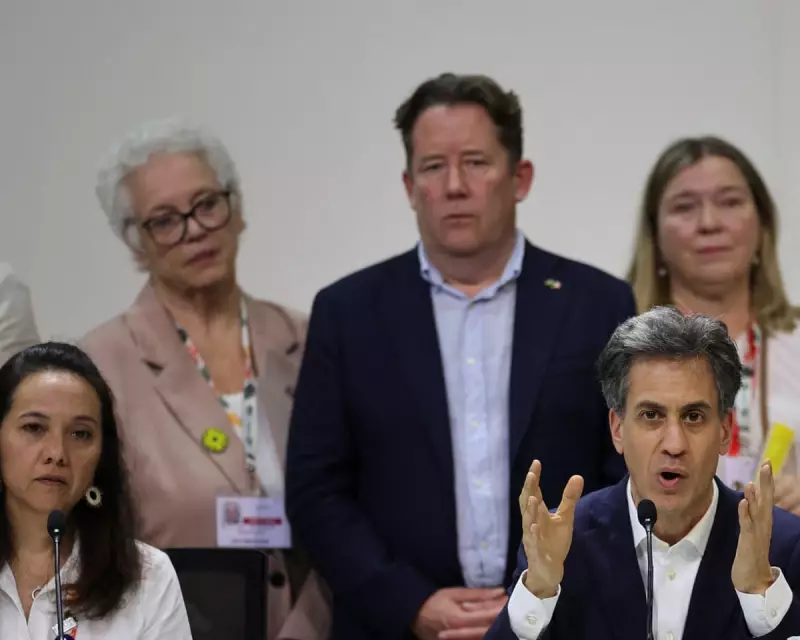
In a powerful display of international unity, more than 80 countries have made a dramatic intervention at the UN COP30 climate summit in Belém, demanding the creation of a comprehensive roadmap for phasing out fossil fuels.
The coalition, comprising nations from Africa, Asia, Latin America, the Pacific, and Europe including the UK, presented an impassioned plea for making the transition away from fossil fuels a central outcome of the negotiations, despite facing stiff opposition from petrostates and some major economies.
Global Coalition Takes a Stand
Tina Stege, climate envoy for the Marshall Islands, stood alongside ministers from 20 countries at a packed press conference and delivered a clear message to delegates. "Let's get behind the idea of a fossil fuel roadmap, let's work together and make it a plan," she urged, capturing the determination of the coalition.
The UK's Energy Secretary, Ed Miliband, emphasised the significance of this broad alliance. "This is a global coalition, with global north and global south countries coming together and saying with one voice: this is an issue which cannot be swept under the carpet," he stated at the Tuesday press conference. "We are all saying very clearly that this issue must be at the heart of this conference."
From Dubai Promise to Belém Action
This push comes despite efforts to sideline the issue. The Brazilian hosts had notably excluded any mention of the "transition away from fossil fuels" from the official conference agenda and even from behind-the-scenes presidency consultations on the toughest negotiation topics.
The current situation represents a critical test of the commitment made at COP28 in Dubai in 2023, where countries agreed to "transition away from fossil fuels." Since that agreement, several nations led by Saudi Arabia have attempted to weaken the resolution, and subsequent talks in Baku failed to build upon it.
Rachel Kyte, the UK climate envoy, stressed the need for concrete action. "We agreed this at COP28 but have not been able to find ways to implement it," she explained. "And this is an implementation Cop."
Roadmap Faces Challenges and Opposition
In a surprising move on Tuesday morning, the Brazilian COP30 presidency included mention of a fossil fuel phase-out roadmap as an option in a draft decision text. However, many supporters found this proposal insufficiently strong.
Ralph Regenvanu, Climate Change Minister for Vanuatu, told The Guardian: "It's not strong enough, it needs to be more action-oriented, it needs measurable targets, there need to be elements showing what this roadmap is going to look like."
Supporters clarified that the proposed roadmap would acknowledge different national circumstances while maintaining a unified direction. Some nations possess large fossil fuel reserves, others depend on imports, and many developing countries will require financial assistance and access to low-carbon technology to transition successfully.
Marina Silva, Brazil's Environment Minister, described the roadmap as "an ethical answer" to the climate crisis and called on all countries to "have the courage" to consider it seriously.
Despite the broad support, the coalition anticipates strong opposition from Saudi Arabia, Russia, Bolivia, and other petrostates. While supporters believe they represent a majority of countries at the summit, the UN climate process operates by consensus, meaning even a handful of opposing nations could obstruct progress.
Campaigners have welcomed this significant development. Jasper Inventor, Deputy Programme Director at Greenpeace International, described it as a potential "turning point of COP30" and a "strong signal coming from global south and global north countries on the need to phase out fossil fuels."





